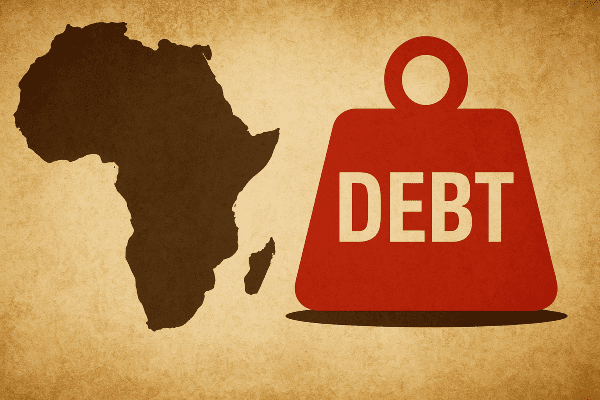The African Development Bank has approved a $25 million equity investment in The Currency Exchange Fund, a specialized hedging facility designed to reduce foreign exchange risks that have contributed to Africa’s mounting debt distress across multiple countries.
The board decision, announced Wednesday, strengthens TCX’s ability to provide long-term local currency hedging solutions in African markets where conventional hedging instruments remain either underdeveloped or completely absent. The investment comes as African countries grapple with external debt service obligations projected to reach $163 billion annually through 2030.
TCX has hedged more than $17 billion in notional amounts since its creation in 2007, including over $4 billion across 31 African countries. The fund operates as a development-focused institution providing tailor-made foreign exchange hedging instruments that enable local currency lending in frontier and emerging markets.
Ahmed Attout, Director of Financial Sector Development at AfDB, positioned the investment as addressing “root causes of debt distress” by enabling borrowers to access financing in their local currencies rather than hard currencies that expose them to exchange rate volatility. The approach directly tackles currency mismatches that have intensified debt burdens across the continent.
The strategic timing reflects Africa’s deteriorating debt landscape, with over 20 countries currently in debt distress or at high risk. Currency devaluation has amplified debt service costs for countries with significant dollar-denominated obligations, making local currency financing increasingly critical for sustainable development financing.
TCX Chief Executive Officer Ruurd Brouwer welcomed AfDB as a new shareholder, emphasizing the partnership’s potential to protect both public and private sector borrowers from currency risk while promoting African capital market development. The fund currently maintains around 18% of its global outstanding portfolio in fragile and low-income countries.
The investment builds on AfDB’s previous participation in TCX and reflects confidence in the fund’s impact-driven model. TCX can hedge over 100 currencies worldwide, providing critical infrastructure for international lenders seeking to offer local currency loans in markets where commercial hedging solutions don’t exist.
For African borrowers, the expanded TCX capacity addresses a fundamental development challenge. Currency mismatches between hard currency debt and local currency revenues create vulnerability to exchange rate shocks that can rapidly transform manageable debt levels into unsustainable burdens, as witnessed across multiple African economies in recent years.
The transaction is expected to crowd in additional development finance institutions and private investors, potentially multiplying the impact beyond AfDB’s direct $25 million commitment. TCX is backed by investors including FMO, International Finance Corporation, and European Bank for Reconstruction and Development, creating a multilateral framework for addressing currency risk.
Priority sectors for expanded hedging include debt management offices, public development banks, infrastructure financing, energy access projects, microfinance institutions, and small and medium enterprise development. These sectors are critical for Africa’s development agenda but have been particularly affected by currency volatility and limited access to local currency financing.
The investment aligns with AfDB’s Ten-Year Strategy 2024-2033 and complements broader capital market development initiatives including support for local currency bond issuance, partial credit guarantees, and private sector local currency lending. The integrated approach aims to create comprehensive solutions for Africa’s financing challenges.
Local currency financing reduces borrower exposure to exchange rate fluctuations while promoting domestic capital market development. By enabling lenders to offer local currency loans backed by TCX hedging, the mechanism creates incentives for developing local institutional investor capacity and domestic savings mobilization.
The development impact extends beyond individual transactions to systemic improvements in African financial markets. Enhanced local currency financing capacity can reduce dependence on external financing while building resilience against global financial volatility that has repeatedly disrupted African economies.
For development finance institutions, TCX provides essential infrastructure for extending local currency financing without assuming excessive currency risk. The mechanism enables DFIs to support development objectives while maintaining prudential risk management standards required by their shareholders and regulators.
The announcement reflects growing recognition among development partners that addressing Africa’s debt challenges requires innovative solutions beyond traditional lending approaches. Currency hedging represents a targeted intervention that addresses specific technical barriers while supporting broader development objectives.
Success in expanding local currency financing through TCX could establish a model for replication across other developing regions facing similar currency mismatch challenges. The African experience may provide valuable lessons for addressing systemic issues in development financing architecture.
Source: newsghana.com.gh











